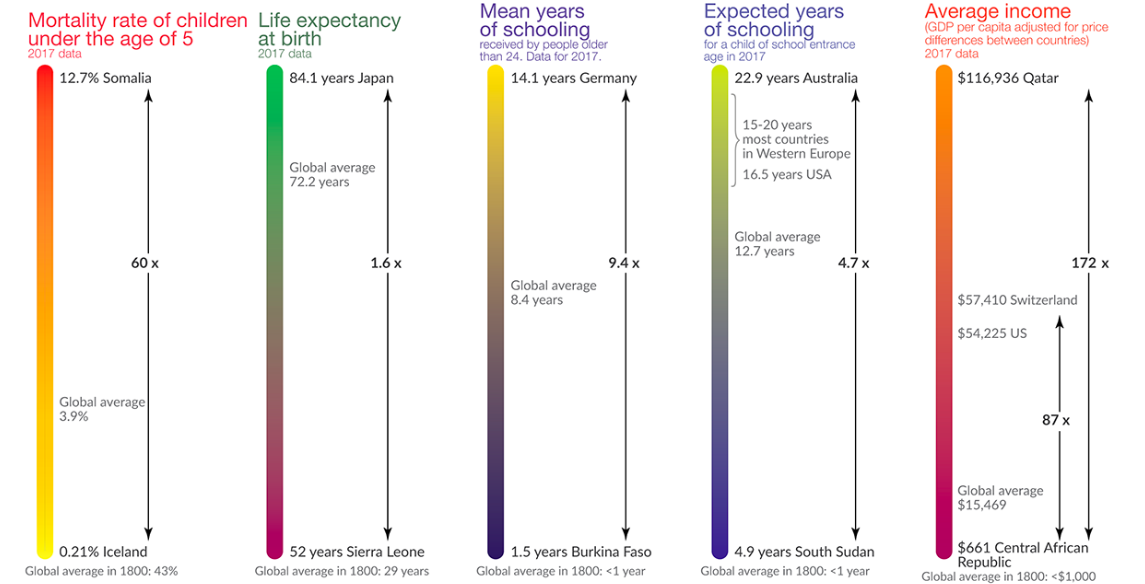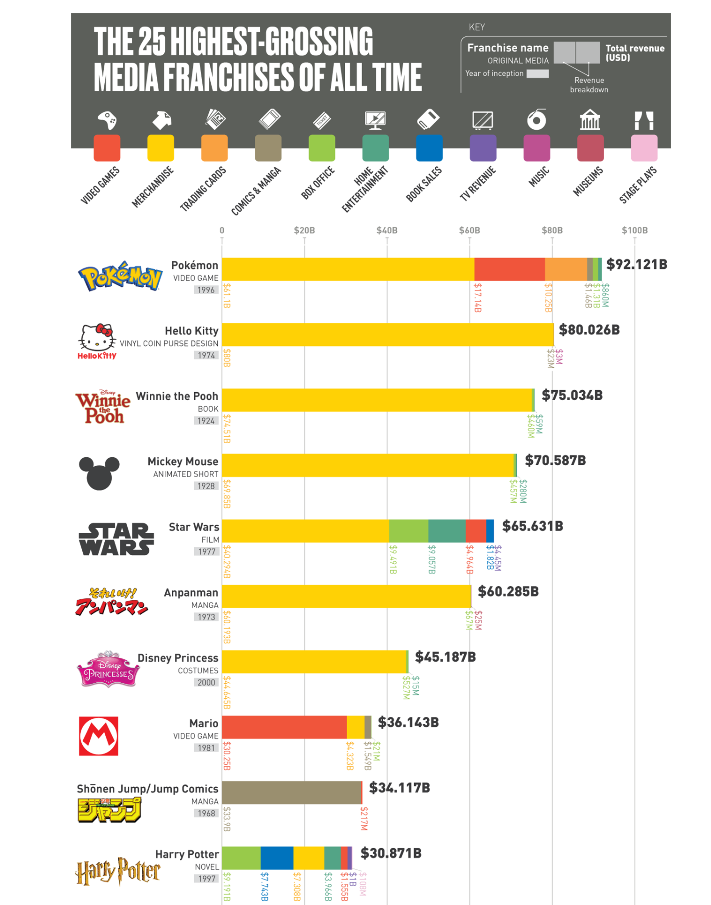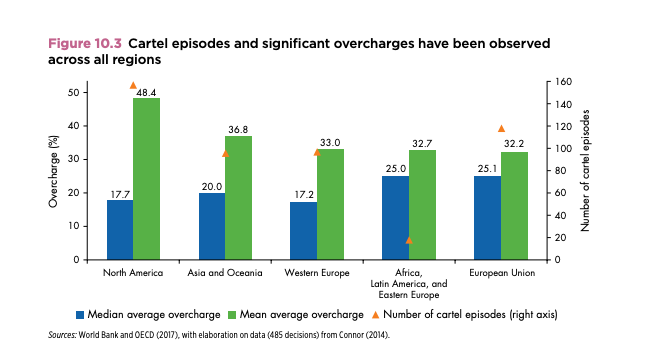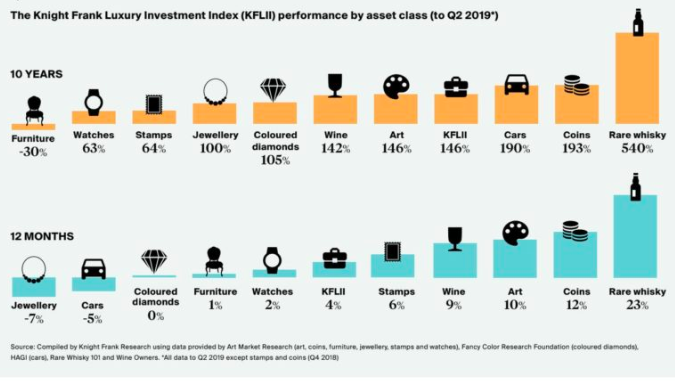- 5th consecutive year of Hedge Funds closing.
- We previously wrote about lack of overall fund launches.
Misc
Miscellaneous is often where the gems are.
Failure
- It is always important in investing to learn from failure.
- The verge have produced a list of 84 of the last decade’s tech failures.
- Enjoy and learn!
2019 Snippet Wrap Part 2
- Most read Snippets of 2019.
- Woodford’s demise was a big deal for the fund management industry but, despite press, was foreseen by many.
- Business tactics in unlikely places.
- Knight Frank Luxury investment index component returns.
- US Government Deficits are going in the wrong direction.
2019 Snippet Wrap Part 1
- A series of the most popular snippets of 2019
- The cost declines of renewable energy compared to conventional energy generation has started to flat line.
- Real assets are at an all-time low against financial assets.
- Tech change is exponential.
- Fertility rates by education is a shocking stat.
Druckenmiller Interview
- Good interview with the always interesting Stanley Druckenmiller.
- Druckenmiller managed money for George Soros between 1988 – 2000 and was closely involved with the latter’s famous hedge fund bets.
- He discussed monetary policy and the upcoming US election.
Last Minute Christmas Gift?
- Looking for that last minute Christmas present?
- How about a subscription to The Browser.
- The Browsers sends you a daily email with five recommended articles on every imaginable topic.
- As an investor it is important to broaden one’s reading as wide as possible. This Browser gives you just that.
- Good curation is the hardest part of the internet, something Snippet stands for as well.
Country Stats
- Charts shows the distribution of countries by various statistics.
- Interesting to see who is top and bottom – try guess before you look.
- The categories are – Mortality rate of children under the age of 5, life expectancy, mean years of schooling, expected years of schooling, average income.
Air Pollution
- Great post showing how air pollution is detrimental to intelligence.
- Chess players make more mistakes on polluted days: “We find that an increase of 10 µg/m³ raises the probability of making an error by 1.5 percentage points, and increases the magnitude of the errors by 9.4%.
- World Bank air pollution data can be found here.
- Interestingly pollution has been declining, but 45% of the global population is still exposed to levels above those recommended by WHO.
Dave
- Shocking stat that there are more men named Dave in the fund management industry in the UK than there are women.
List worth reading (2019)
- We previously mentioned this really interesting list.
- The 2019 version is out and is equally awesome. 52 gems.
- Highlights:
- Spotify pays by the song. Two three minute songs are twice as profitable as one six minute song. So songs are getting shorter.
- Nigeria spends more on petrol subsidies than on health, or education, or defence.
- The goal of walking 10,000 steps per day may have originated when a Japanese pedometer manufacturer noticed that the 万 symbol (which means 10,000) looks a little like someone walking. The actual health merits of that number ‘have never been validated by research.’
- Asking ‘What questions to do you have for me?’ can be dramatically more effective than ‘Any questions?’ at the end of a talk.
- All references and related articles found in the link. h/t Fluxx Studio Notes.
Top Media Franchises
- Do you think you can name the top 25 media franchises of all time?
- Full list can be found here and image below shows the top 10.
- h/t Visualcapitalist.
Cartels
- Cartels have been a feature across the world.
- Cartels lead to prices for consumers and businesses that are higher than they would be if competition prevailed – they overcharge.
- The chart shows on average overcharging has been 34%.
- North America stands out with some very large overcharging cases by cartels (the mean is a lot higher than median).
European Cloud
- European nations are starting to realise that they might have lost the next race – cloud technology.
- Cloud technology is a huge enabler as we have written about before.
- The EU are now starting, in typical fashion, the fight back.
- This is reminiscent of how in 1967, fearing the rise of US aviation, an agreement between Germany, France and Britain (notice the absence of the latter from the current proposal) to join forces in technology gave birth to Airbus.
Problem Solving Game
- Try out this fascinating game.
- It is designed to test your ability to solve problems.
- As you will see the lessons from it are vital for investing.
Biology
- A fascinating piece from a16z, the US venture capital firm, on biology.
- They run a $650m Bio fund and invest in many new technologies.
- “Bio today is where information technology was 50 years ago: on the precipice of touching all of our lives. Just like software—and because of it—biology will one day become part of every industry.”
- Lots of links within to articles (written by a16z) on various aspects of how healthcare is transforming.
- This piece is a shout out to the now famous 2011 article by a16z “Why Software is Eating the World”.
Lambda School
- This is an interesting start up – Lambda School.
- They teach you coding at no upfront cost.
- Once you graduate they take 17% of your total pay for two years if it is at least $50k per annum (payments capped at $30k).
- A very interesting model, read more about it here.
Assets
- An interesting infographic of the investment performance of components of the Knight Frank Luxury Investment Index.
- As pointed out here not all of these are actually “investible assets”.
- The key issue is liquidity – can you actually sell?
Max Martin
- You have probably never heard of this man.
- Yet he has co-written and co-produced 73 US Top 10 singles.
- 22 of these have gone to No 1.
- He is third must successful songwriter behind … well, try and see if you can guess who the top two song writers in US Chart History are.
- Answer and a rare interview here.
Machine Learning
- A great piece giving a nice perspective on machine learning and AI.
- First we had the AI platforms – AWS/Google/MSFT etc.
- Then this tool looked for a problem to solve – everywhere.
- Then a universe of companies solving problems with AI are born.
- Finally we have proliferation outside of tech.
Business Tactics
- Sometimes one finds lessons for business tactics in unlikely places.
- This is a brilliant article on the drug trade in the UK.
- “Mohammed Qasim, a research fellow at Leeds Beckett University who studies drug dealers, described the Albanian business approach as “fantastic”, adding: “If they were on Dragon’s Den with this model, all the dragons would be giving them money.””






